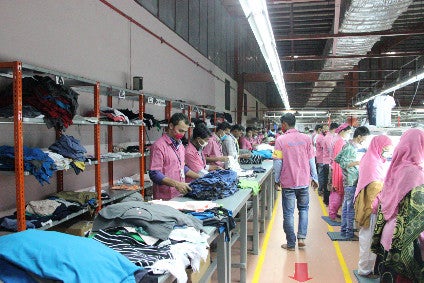
The Clean Clothes Campaign (CCC) says the progress reached on fire safety by the Bangladesh Accord is under “severe threat” if it closes at the end of the month, and has called on the government to lift the restraining order.
In May, the Bangladesh High Court ordered the Transition Accord, as it is now known, to end its operations by 30 November. The safety alliance has since appealed the High Court’s decision to allow an extension to 2021.
The government’s Remediation Coordination Cell (RCC) is set to oversee workplace safety and remediation once the Transition Accord ends, but in a recent resolution, the European Parliament said the RCC “does not yet have the capacity to monitor and enforce health and safety requirements, with the serious implications for the safety and rights of factory workers that this entails”.
The call from Clean Clothes Campaign for the Government to lift the restraining order comes on the sixth anniversary of the Tazreen factory fire on Saturday (24 November), in which 112 garment workers were killed. They were producing clothes for a range of international brands, including Walmart, C&A, El Corte Ingles and KiK.
CCC says the forced closure of the Bangladesh Accord’s domestic office operations later this month threatens to “undermine the positive developments of the last five years and to plunge the country back into a situation in which workers will have to fear for their lives when entering their workplace”.
See Also:
“The progress reached on fire safety by the Bangladesh Accord is under severe threat now that its Bangladesh office operations might be closed after 30 November,” says Ineke Zeldenrust of Clean Clothes Campaign. “This will impair the Accord’s ability to inspect and monitor factories in Bangladesh and violates previous agreements that Accord would remain fully operational until domestic institutions have the technical capacity and the political will to perform inspections and ensure remediation. The risk of new factory tragedies looms large, which is a reputational and legal risk for brands, but in which workers pay the largest price of all: their lives.”
How well do you really know your competitors?
Access the most comprehensive Company Profiles on the market, powered by GlobalData. Save hours of research. Gain competitive edge.

Thank you!
Your download email will arrive shortly
Not ready to buy yet? Download a free sample
We are confident about the unique quality of our Company Profiles. However, we want you to make the most beneficial decision for your business, so we offer a free sample that you can download by submitting the below form
By GlobalDataAccording to CCC, upon starting work in 2013, Accord engineers found that 97% of the over 1,600 factories under their purview had no safe emergency exits and 91% had no adequate fire detection or alarm system. Five years later, 97% of lockable or collapsible gates have been removed and 74% of all found fire safety defects have been corrected, with another 12% still pending verification.
But the human rights group points out that, 56% of the factories without proper fire alarms still fail to have adequate systems in place. And beyond the over 1,600 Accord factories, there are at least 930 garment factories not covered by any security scheme. A further 809 factories are covered by the Bangladeshi Department of Inspection for Factories and Establishments (DIFE), which CCC says only reports a 27% remediation rate on fire safety defects.
Clean Clothes Campaign says DIFE and the RCC face “a considerable task” inspecting and remediating the factories currently under their purview and soon might have to cover hundreds of additional factories.
Zeldenrust adds: “At this moment in a large portion of garment and textile factories workers still risk ending up in a death trap during a fire. A tragedy like the Tazreen fire could happen again any day. Will consumers still want to buy their clothes ‘made in Bangladesh’ after another major fire or collapse? In this situation it would seem reckless to curtail the one credible and successful safety programme currently active in Bangladesh: the Accord. Clean Clothes Campaign urges the government of Bangladesh to do itself, its workers and the garment brands sourcing from its country a service and support the Bangladesh Accord’s appeal to lift the restraining order.”







